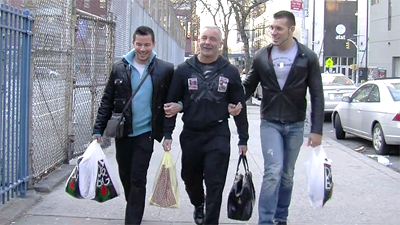There has been some awesome coverage of the OpenSF conference. Stories about the conference were published in the San Francisco Bay Guardian, Oakland Local, and Bay Area Reporter, and there are some great personal accounts from attendees scattered around the internet as well.
But my favorite post was from Nice Girl of the blog Nice Girls Like Sex Too. Called "I Am Coming Out," it's a direct response to the call to action in my OpenSF keynote -- asking folks to live their lives as openly as they can, especially if they don't outwardly appear to be members of marginalized groups. And it's wonderful.
I have been the direct beneficiary of the bravery of so many other people in the marginalized communities I identify with, and yet I have refused to speak publicly about my membership in these communities. So, as I take a deep breath, I am going to come out to you all. Right now.
I am kinky. I enjoy BDSM style sex, with spanking, restraints, blindfolds, collars, whips, paddles, corsets, and addressing my partner as "Sir" when we are engaging in this sort of play . . . I am a happier and healthier person for it.
. . . My boyfriend and I are considering non-monogamy. At the time of writing this post, we are still unsure what that non-monogamy will look like, but the OpenSF conference has given us the tools, the language, and the support of a community as we explore this space. Our relationship and interpersonal communication has already improved dramatically.
. . . I have answered Tristan's call to action, and I am now issuing one of my own. It is so incredibly important that those of us who have the privilege of appearing mainstream to publicly proclaim our membership to the marginalized, demonized, and ostracized communities who have given us so much . . . Come out. Our world will be brighter when you do.
Read the whole thing at Nice Girls Like Sex Too.

 A gay triad is the subject of a new short documentary from producers Nilo Tabrizy and Suvro Banerji. Entitled
A gay triad is the subject of a new short documentary from producers Nilo Tabrizy and Suvro Banerji. Entitled